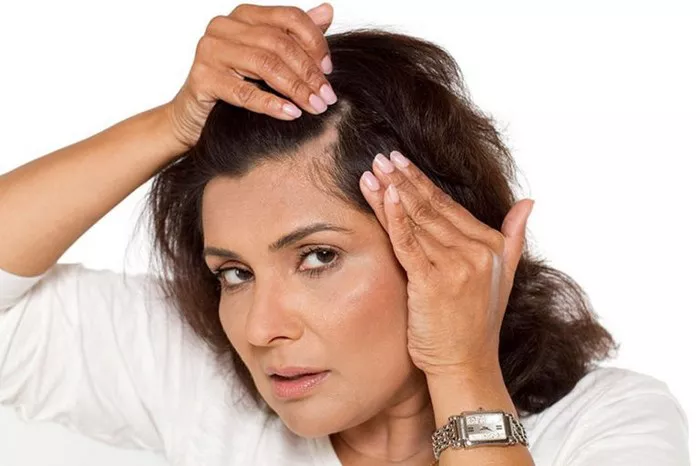Hair loss can be a distressing experience, impacting self-esteem and confidence. While various factors contribute to hair loss, including genetics, hormonal changes, and medical conditions, the products we use on our hair, particularly shampoos, can also play a significant role. Understanding the ingredients in shampoos and their potential effects on hair health is crucial for making informed choices about hair care routines. In this article, we’ll delve into the connection between shampoos and hair loss, exploring common ingredients, potential risks, alternatives, product recommendations, expert opinions, and steps for prevention.
Explanation of Common Ingredients
Shampoos contain a myriad of ingredients, some of which may have adverse effects on hair and scalp health. Among these, sulfates, formaldehyde, and keratin are notable:
1. Sulfates: Sulfates, such as sodium lauryl sulfate (SLS) and sodium laureth sulfate (SLES), are surfactants commonly used in shampoos for their ability to create lather and remove dirt and oil from the hair. However, sulfates can also strip the scalp of its natural oils, leading to dryness and irritation. This can weaken the hair follicles and contribute to hair loss over time.
2. Formaldehyde: Formaldehyde and formaldehyde-releasing preservatives, such as DMDM hydantoin and imidazolidinyl urea, are often found in shampoos as preservatives to prolong shelf life. However, formaldehyde is a known irritant and allergen that can cause scalp irritation and hair loss, especially in individuals with sensitive skin.
3. Keratin: While keratin is a protein naturally found in hair, skin, and nails, some shampoos contain added keratin as a strengthening agent. However, excessive use of keratin-based shampoos can lead to protein buildup on the hair shaft, making the hair brittle and prone to breakage, ultimately contributing to hair loss.
Potential Risks
The use of shampoos containing sulfates, formaldehyde, and excessive keratin can pose several risks to hair and scalp health:
1. Dryness and Irritation: Sulfates can strip the scalp of its natural oils, leading to dryness, itching, and irritation. This can disrupt the hair growth cycle and contribute to hair loss.
2. Allergic Reactions: Formaldehyde and formaldehyde-releasing preservatives are known allergens that can cause allergic reactions, including scalp redness, inflammation, and hair loss in susceptible individuals.
3. Hair Damage: Excessive use of keratin-based shampoos can cause protein buildup on the hair shaft, making the hair brittle, weak, and prone to breakage. This can result in hair loss and a decrease in hair volume over time.
Alternatives
Fortunately, there are alternative ingredients and formulations available in shampoos that are considered to be less harmful or beneficial for hair health:
1. Sulfate-Free Formulas: Look for shampoos labeled as “sulfate-free” or containing milder surfactants, such as sodium cocoyl isethionate or sodium lauryl sulfoacetate. These gentler cleansers effectively remove dirt and oil without stripping the scalp of its natural oils, helping to maintain a healthy scalp environment.
2. Natural and Organic Ingredients: Choose shampoos formulated with natural and organic ingredients, such as botanical extracts, essential oils, and plant-based surfactants. These ingredients are less likely to cause irritation and are often nourishing and soothing for the scalp.
3. Moisturizing and Hydrating Formulas: Opt for shampoos enriched with moisturizing agents, such as glycerin, hyaluronic acid, and coconut oil, to help hydrate the scalp and prevent dryness and irritation. These formulations are especially beneficial for individuals with dry or sensitive scalp conditions.
Product Recommendations
When selecting a shampoo that promotes hair health and minimizes the risk of hair loss, consider the following recommendations:
1. Aveeno Pure Renewal Shampoo: This sulfate-free shampoo is formulated with naturally derived ingredients, such as seaweed extract and wheat protein, to cleanse the hair gently while maintaining moisture balance.
2. SheaMoisture Raw Shea Butter Moisture Retention Shampoo: Enriched with shea butter, argan oil, and sea kelp extract, this hydrating shampoo nourishes the scalp and strengthens the hair, reducing breakage and promoting healthy hair growth.
3. Briogeo Scalp Revival Charcoal + Coconut Oil Micro-Exfoliating Shampoo: This detoxifying shampoo contains charcoal and coconut oil to cleanse the scalp, remove impurities, and soothe irritation, making it ideal for individuals with oily or congested scalp conditions.
Expert Opinions
Dermatologists and trichologists offer valuable insights on choosing the right shampoo and maintaining hair health:
Dr. Sarah Lee, Dermatologist: “When selecting a shampoo, it’s essential to consider your scalp type and any specific concerns you may have, such as dandruff or scalp sensitivity. Look for shampoos with gentle, non-stripping cleansers and nourishing ingredients to promote a healthy scalp environment and minimize the risk of hair loss.”
Dr. James Smith, Trichologist: “Avoid shampoos containing harsh sulfates and chemical preservatives, as these can irritate the scalp and weaken the hair follicles. Instead, opt for sulfate-free formulas enriched with natural moisturizers and scalp-friendly botanicals to support hair growth and maintain hair health.”
Steps for Prevention
In addition to choosing the right shampoo, implementing proper hair care routines and lifestyle changes can help prevent hair loss:
1. Regular Scalp Massage: Incorporate scalp massage into your hair care routine to stimulate blood circulation and promote nutrient delivery to the hair follicles, encouraging healthy hair growth.
2. Gentle Handling: Be gentle when washing and styling your hair to minimize breakage and damage. Use a wide-tooth comb to detangle wet hair and avoid excessive heat styling and tight hairstyles that can stress the hair shaft and scalp.
3. Balanced Diet: Maintain a balanced diet rich in vitamins, minerals, and proteins essential for hair health. Incorporate foods such as lean proteins, fruits, vegetables, and omega-3 fatty acids to nourish the hair follicles from within.
4. Stress Management: Practice stress-reducing techniques, such as meditation, yoga, or deep breathing exercises, as chronic stress can disrupt the hair growth cycle and contribute to hair loss.
By understanding the relationship between shampoos and hair loss and making informed choices about hair care products and routines, you can support healthy hair growth and maintain a vibrant, full head of hair. Choose shampoos formulated with gentle, scalp-friendly ingredients, and prioritize proper hair care practices to promote optimal hair health and minimize the risk of hair loss.


